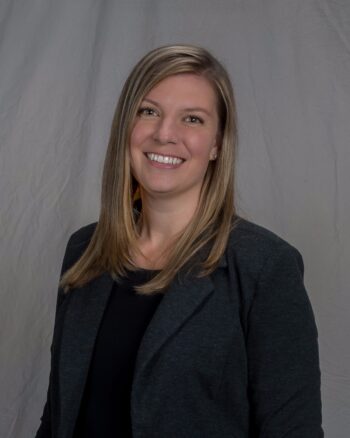Home / News & Events /
Advocating for individuals living with disabilities

March is Developmental Disabilities Awareness Month. This observance is set aside to honor those with disabilities and to advocate for their equity in access and opportunity.
The World Health Organization (WHO) estimates that 15% of people in the world live with a disability, increasing to 26% when looking only at those in the U.S. Of the worldwide 15%, two in three people will not seek out help because of stigma or discrimination.
People living with disabilities are more likely to face chronic health problems such as obesity (38.2%), heart disease (11.5%) and diabetes (16.3%). Despite having increased health challenges, people with disabilities also have more trouble accessing quality healthcare. One third have no healthcare provider, another third have an unmet healthcare need due to cost and one fourth have had no routine checkup in the last year. Beyond these troubling statistics, when these individuals do receive care, some face barriers in having their problems properly heard and understood by providers.
Centerstone is committed to breaking down barriers for individuals living with disabilities. I oversee 15 residential programs and 10 vocational sites throughout Illinois that are designed to support people with disabilities by helping them attain their goals and grow in their independence. In the last year, we served over 250 people with intellectual and developmental disabilities by providing residential services (24/7 or intermittent), operating a clinic for individuals with Autism, teaching job skills and seeking out opportunities for employment and community involvement.
While the COVID-19 pandemic has surely been challenging for everyone, it has been especially difficult for people with disabilities. The pandemic has made access to healthcare even harder to obtain and has made community involvement much harder to find. People within these populations operate best when they are involved and contributing, and the pandemic has intercepted this.
Fortunately, we have been able to keep our clients connected with the world. They are using technology to stay in touch with one another, attend online social gatherings and communicate with family and friends. We offer regular classes, options to meet virtually with staff and advocacy meetings through the use of tablets. Through it all, Centerstone continues to do all it can to meet everyone where they are to provide the care they need.
And that is the best way to support people with disabilities: meet them exactly where they are. The best starting point for advocating for those with disabilities is developing real relationships with them. I have had the privilege of developing close relationships with the clients we serve. As much as I support them through my role, they support me through friendship, getting to know me and bearing my burdens with me.
Through these relationships, we can develop a better understanding of people living with disabilities and remove any assumptions we may hold. Having a disability does not define a person – it is a part of them, but it is not who they are. More than anything, these individuals are hindered the most when others put them in a box and fail to recognize their intrinsic value and their contributions.
People with disabilities are already integral contributors to our communities, so you can take the first step by taking the time to reach out to them. There are likely organizations within your community that work to serve and advocate for people with disabilities. Getting involved will give you a clearer path toward your own advocacy and connect you with the amazing people within these populations. This Developmental Disabilities Awareness Month, take some time to see how you can help.
Helen Blackburn, MS, QIDP, LCPC is the Director of Vocational & Residential Services for Centerstone, a nonprofit health system providing mental health and substance use disorder treatments to people of all ages.


